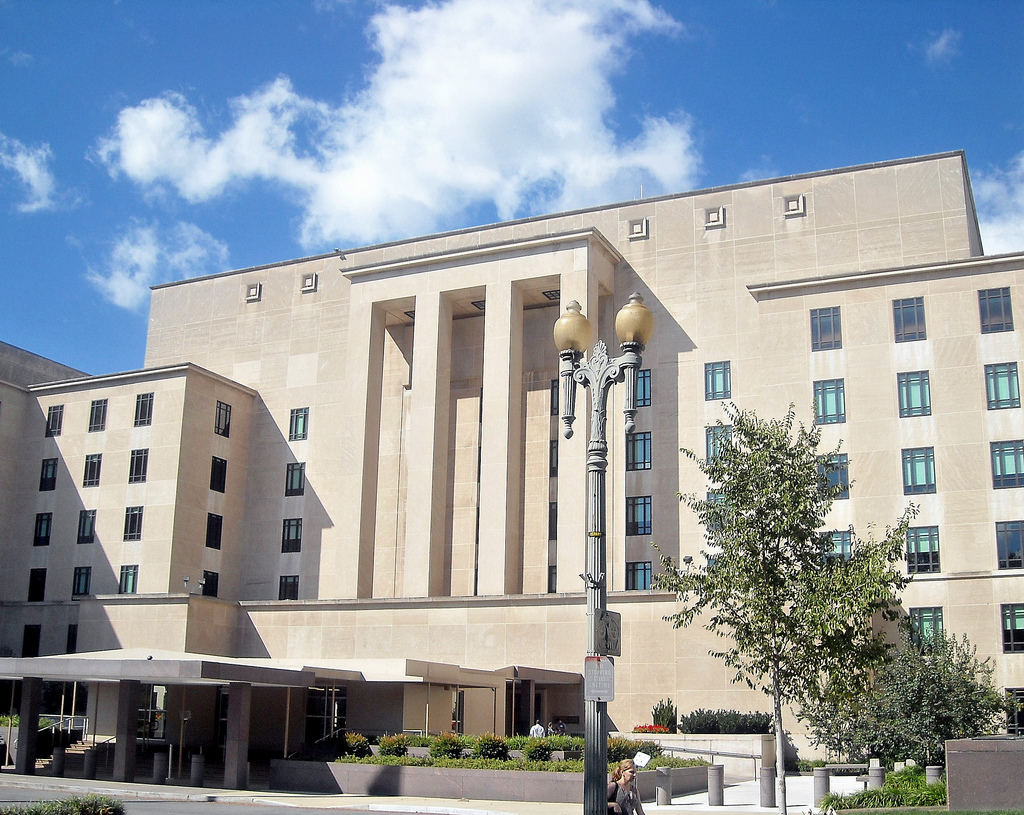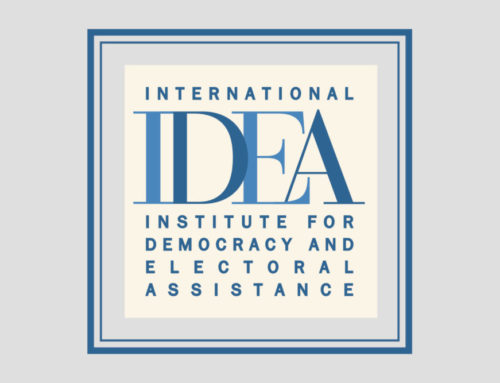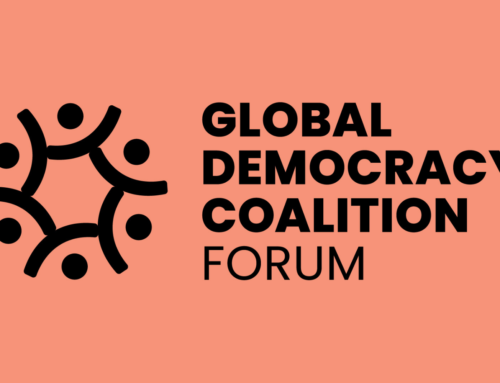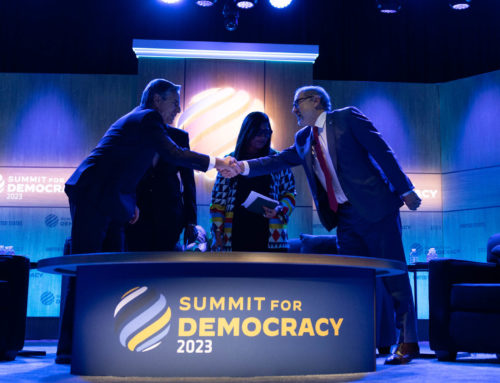THE WASHINGTON FOREIGN PRESS CENTER, WASHINGTON, D.C.
MODERATOR: Well, good morning, everyone, and welcome to the Washington Foreign Press Center’s briefing on the 2023 Summit for Democracy. My name is Doris Robinson and I am the briefing moderator. As a reminder, this briefing is on the record, and we will post the transcript later today on our website at fpc.state.gov.
Our distinguished briefer today is NSC Senior Director for Democracy and Human Rights Rob Berschinski. He will start with some opening remarks and then we will take your questions. Over to you.
MR BERSCHINSKI: Thanks, Doris. It’s a pleasure to be back at the Foreign Press Center to discuss the second Summit for Democracy, which President Biden and the leaders of Costa Rica, the Netherlands, the Republic of Korea, and the Republic of Zambia will co-host next week.
It’s been just over three months since I was last here to discuss the summit, and in the meantime a lot of work has gotten done, so allow me to start with a bit of a laydown. First, I want to reiterate the reasons why we’re doing this. As President Biden has said, we’re currently at an inflection point when it comes to the future of democracy, both within the United States and around the world. The defining question of this age is whether democracies will continue to deliver for their people in a rapidly changing world.
The United States launched the Summit for Democracy process in early 2021 to put new and high-level focus on the need to strengthen democratic institutions, protect human rights, and accelerate the fight against corruption both at home and abroad. In the 15 months since we held the first Summit for Democracy in December of 2021, the world has witnessed profound change, emerging from a global pandemic and responding decisively as Russia brutally invaded its neighbor Ukraine in violation of the UN Charter. The events of 2022 put in stark relief what we already knew – that democratic government grounded in the rule of law and the will of the governed remains, for all its messiness and challenges, the best tool humanity has to unleash human potential, maintain international peace and security, grow prosperity, and uphold human dignity.
So given that context, the second Summit for Democracy will gather leaders from around the world to again shine a spotlight on the need to strengthen democratic resilience and the protection of human rights as a fundamental imperative of our time. It will once again highlight how democracies deliver for their citizens and are best equipped to address the world’s most pressing challenges.
Now, as of last night, an agenda for the summit went live on the State Department’s Summit for Democracy website. That’s at www.state.gov/summit-for-democracy. So I’d refer you to that webpage for additional details, including on the event’s many themes, speakers, and timing. But let me just say a few brief words on the run of show.
The formal summit runs from next Wednesday, March 29th, to Thursday, March 30th, and will be preceded by a day of high-level thematic events on Tuesday, March 28th, hosted by members of President Biden’s cabinet and other senior U.S. Government officials. On Wednesday, March 29th, President Biden, joined by President Chaves of Costa Rica, Prime Minister Rutte of the Netherlands, President Yoon of the Republic of Korea, and President Hichilema of the Republic of Zambia will assemble world leaders in a series of virtual leader-level plenary sessions. We’ve extended invitations to 120 foreign governments and other partners to join this group. Interspersed throughout the day will be interventions from noteworthy pro-democracy and pro-human rights advocates who will have a chance to address government leaders.
Then, on Thursday, March 30th, each summit – government will host in its capital an in-person regional ministerial-level gathering with representatives from foreign governments and nongovernmental actors. So what audiences will witness on March 30th is pretty unique, as we’ll have a summit ongoing in five different locations around the world, all happening on the same day. The U.S.-hosted event on March 30th will focus on advancing technology for democracy, the topic of which will be a significant focus area of U.S. announcements during the summit.
Our foreign partners will focus their in-person events on March 30th on other thematic topics essential to the functioning of representative and accountable governance. The Costa Rican event will focus on the role of youth in democratic systems; the Dutch event will focus on media freedom as a cornerstone of democracy; the South Korean event will focus on the fight against corruption; and the Zambian event will focus on bolstering free and fair elections. The U.S. Government is sending high-level delegations to each of our co-host partners’ events in support of what they’re doing. So, for example, Ambassador Katherine Tai, the U.S. Trade Representative, will lead our delegation in Korea, and Ambassador Linda Thomas-Greenfield, our ambassador to the United Nations, will lead the delegation to Costa Rica.
The thematic events hosted by U.S. Government departments and agencies on Tuesday, March 28th that I mentioned will also touch on core summit themes. These will include, among several others – and again, I’d refer you to the website for a full rundown – meetings and events focused on a just and lasting peace in Ukraine and also the imperative of gender equality to democratic, rights-respecting societies. And both of those events will be hosted by Secretary Blinken – Secretary of State Blinken.
The importance of the fight against corruption, hosted by Treasury Secretary Yellen; and the ways in which the Department of Justice is defending the rule of law from transnational threats, which will come via a speech from Deputy Attorney General Lisa Monaco. In addition, Deputy Secretary of Commerce Don Graves will represent the U.S. Government at a half-day forum on business and democracy hosted here in Washington by the Center for Strategic and International Studies, CSIS, which will spotlight the importance of private – of the private sector to democracy and the commitments that companies are making to advance it.
On the U.S. side alone by my count, the summit is likely to involve the participation of nearly 20 of the U.S. Government’s seniormost officials, but it’s also going to include dozens of our foreign government partners and numerous civil society and NGOs from around the world who have come together in their own right to host events on the margins of this summit, starting this week and particularly on Monday of next week, both in Washington and around the world.
And I’ll close just by saying a few brief words on the announcements we intend to make next week. I don’t want to get ahead of the President and other senior officials, but suffice it to say that we’re looking forward to announcing a number of new initiatives to demonstrate how the United States is working to advance our pro-democracy and pro-human rights agenda. These announcements will include significant additional financial investment in the Presidential Initiative for Democratic Renewal, which President Biden launched at the first Summit for Democracy with over $400 million in funding. New funding will enable new and existing initiatives, programs, and policies that support free and independent media, combat corruption, bolster democratic reformers and human rights activists, defend free and fair elections, and ensure that technology works for and not against democratic societies. And as I alluded to previously, we expect to place particular focus on announcements related to our technology for democracy agenda during the summit itself.
So I’ll conclude with that, Doris, and welcome questions. Thank you.




